H.E. Ms. Ankie Broekers-Knol, Speaker of the First House of the Dutch Parliament, visited PKULS
Date:2016-11-30
On November 7, 2016, H.E. Ms. Ankie Broekers-Knol, Speaker of the First House of the Dutch Parliament, visited the Peking University Law School and gave a lecture on the development of the rule of law in the Netherlands. Mr. Andre Driessen, Charge d'affaires ad interim of the Embassy of the Netherlands, Mr. Nico Schrijver, President of the Foreign Affairs, National Defense and Development Cooperation Committee of the Dutch Parliament, Mr. Geert Jan Hamilton, Secretary General of the First House of the Dutch Parliament, Emma Brandsen, Foreign Affairs Adviser of the First House of the Dutch Parliament, Gerard van Bracht, Political Officer of the Embassy of the Netherlands accompanied H.E. Ms. Ankie Broekers-Knol . Kan Ke, the former vice director of the Legislative Affairs Commission of NPC Standing Committee and a member of the CPPCC National Committee Proposal Committee , Zhang Jing Sheng and Hu Zihong , cadres of the Foreign Affairs of CPPCC National Committee also attended the activity. Dean Zhang Shouwen of PKULS, Pan Jianfeng, Secretary of the Party Committee, Vice Dean Guo Li, Piao Wendan and Lu Jiangan, Deputy Secretaries of the Party Committee, Prof. Zhang Qianfan, A.P. Jiang Yu and Assistant Director of the Dean's Office. Li Yuanyuan warmly received the visitors.
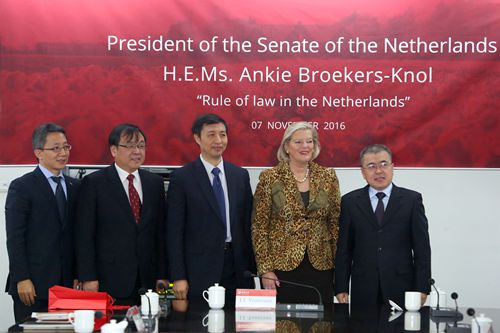
Dean Zhang Shouwen warmly welcomed the speaker's visit on behalf of PKULS. He said that the internationalization is an important development strategy of PKULS, the cooperation history between PKULS and the colleges and universities and research institutions of Netherlands can be traced back to 2009.
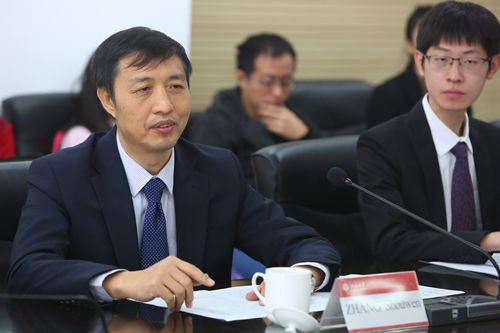
H.E. Ms. Ankie Broekers-Knol was very grateful to Dean Zhang Shouwen and the teachers of PKULS for their hospitality. As a 44-year scholar at the University of Leiden in the Netherlands, she said that moot court courses play a very important role in the legal education . The law students in the learning process should know how to actively think.
Subsequently, H.E. Ms. Ankie Broekers-Knol briefly introduced the status and development of the rule of law in the Netherlands. Today, the Dutch parliament has 75 members, including 12 political parties. Members of different parties debate, negotiate, persuade or compromise on bills. This constitutes a major feature of the Dutch rule of law. Today's Dutch law is divided into three major departments, namely, civil law, criminal law and administrative law departments. And local courts, district courts, the Court of Appeal, the Supreme Court form four levels of the court system. Judges in the Netherlands are subject to tenure, and shall not be removed except in violation of the law. These institutional designs enable the Dutch legal system to function efficiently and independently, maintaining the stability and development of the Netherlands.
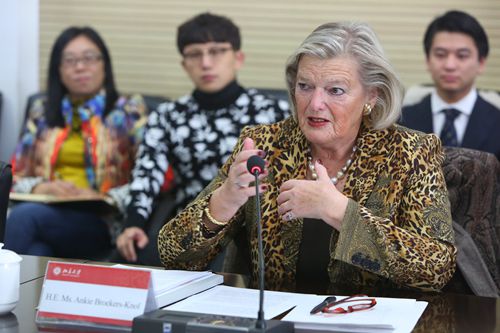
Prof. Zhang Qianfan of PKULS gave a brief comment on the speaker's speech. He contrasted the legal systems of China and the Netherlands, pointing out that there are many similarities between the two, and stressed that China can learn a lot of valuable experience from Netherlands. Nico Schrijver said that the legal systems of China and the Netherlands share many similarities. When China perfects its legal system, China should learn from foreign experiences as well as national conditions of their own development.
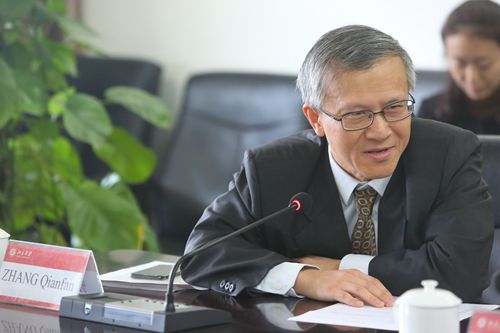
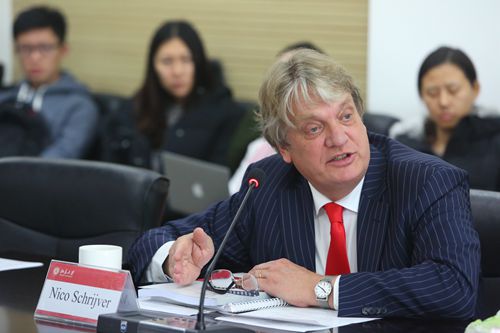
After the event, H.E. Ms. Ankie Broekers-Knol paid a goodwill visit to PKULS 's Mock Court, again expressing her glory as a teacher at the Law School of Leiden University.
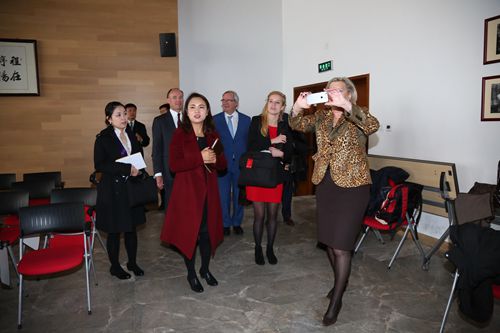
Translated by: Liu Yichu
Edited by: Zhou Wenhao



